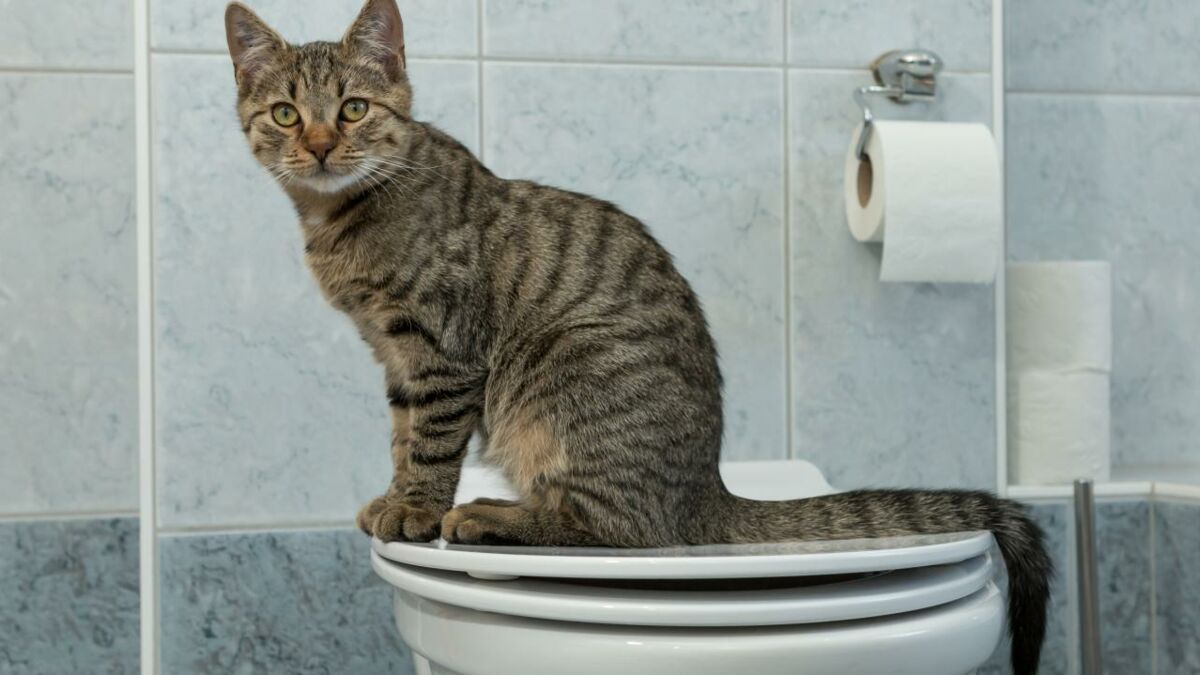On this page down the page yow will discover some excellent insights pertaining to Don’t flush cat feces down the toilet.
Introduction
As pet cat owners, it's essential to bear in mind how we take care of our feline pals' waste. While it might seem hassle-free to flush feline poop down the toilet, this method can have detrimental effects for both the environment and human wellness.
Environmental Impact
Flushing pet cat poop presents damaging virus and parasites right into the water supply, positioning a considerable threat to aquatic communities. These impurities can negatively affect aquatic life and concession water quality.
Health and wellness Risks
Along with environmental issues, purging cat waste can likewise present wellness risks to people. Feline feces might contain Toxoplasma gondii, a parasite that can trigger toxoplasmosis-- a possibly extreme illness, especially for expecting females and people with damaged immune systems.
Alternatives to Flushing
Thankfully, there are much safer and extra liable ways to deal with pet cat poop. Take into consideration the following alternatives:
1. Scoop and Dispose in Trash
The most common approach of throwing away cat poop is to scoop it into an eco-friendly bag and throw it in the trash. Be sure to utilize a devoted trash scoop and get rid of the waste immediately.
2. Usage Biodegradable Litter
Select eco-friendly pet cat clutter made from products such as corn or wheat. These trashes are eco-friendly and can be securely taken care of in the trash.
3. Hide in the Yard
If you have a yard, consider burying feline waste in an assigned area away from vegetable yards and water resources. Make sure to dig deep sufficient to avoid contamination of groundwater.
4. Install a Pet Waste Disposal System
Invest in a pet garbage disposal system specifically designed for pet cat waste. These systems make use of enzymes to break down the waste, minimizing odor and environmental influence.
Verdict
Accountable animal ownership expands past giving food and sanctuary-- it also includes proper waste management. By avoiding purging pet cat poop down the bathroom and choosing different disposal approaches, we can decrease our ecological footprint and protect human wellness.
Why Can’t I Flush Cat Poop?
It Spreads a Parasite
Cats are frequently infected with a parasite called toxoplasma gondii. The parasite causes an infection called toxoplasmosis. It is usually harmless to cats. The parasite only uses cat poop as a host for its eggs. Otherwise, the cat’s immune system usually keeps the infection at low enough levels to maintain its own health. But it does not stop the develop of eggs. These eggs are tiny and surprisingly tough. They may survive for a year before they begin to grow. But that’s the problem.
Our wastewater system is not designed to deal with toxoplasmosis eggs. Instead, most eggs will flush from your toilet into sewers and wastewater management plants. After the sewage is treated for many other harmful things in it, it is typically released into local rivers, lakes, or oceans. Here, the toxoplasmosis eggs can find new hosts, including starfish, crabs, otters, and many other wildlife. For many, this is a significant risk to their health. Toxoplasmosis can also end up infecting water sources that are important for agriculture, which means our deer, pigs, and sheep can get infected too.
Is There Risk to Humans?
There can be a risk to human life from flushing cat poop down the toilet. If you do so, the parasites from your cat’s poop can end up in shellfish, game animals, or livestock. If this meat is then served raw or undercooked, the people who eat it can get sick.
In fact, according to the CDC, 40 million people in the United States are infected with toxoplasma gondii. They get it from exposure to infected seafood, or from some kind of cat poop contamination, like drinking from a stream that is contaminated or touching anything that has come into contact with cat poop. That includes just cleaning a cat litter box.
Most people who get infected with these parasites will not develop any symptoms. However, for pregnant women or for those with compromised immune systems, the parasite can cause severe health problems.
How to Handle Cat Poop
The best way to handle cat poop is actually to clean the box more often. The eggs that the parasite sheds will not become active until one to five days after the cat poops. That means that if you clean daily, you’re much less likely to come into direct contact with infectious eggs.
That said, always dispose of cat poop in the garbage and not down the toilet. Wash your hands before and after you clean the litter box, and bring the bag of poop right outside to your garbage bins.
https://trenchlesssolutionsusa.com/why-cant-i-flush-cat-poop/

We had been made aware of that write-up on Can You Flush Cat Poop Down The Toilet? from an associate on another site. In case you liked our blog posting if you please do not forget to pass it around. Thanks for your time. Visit again soon.
Call Today